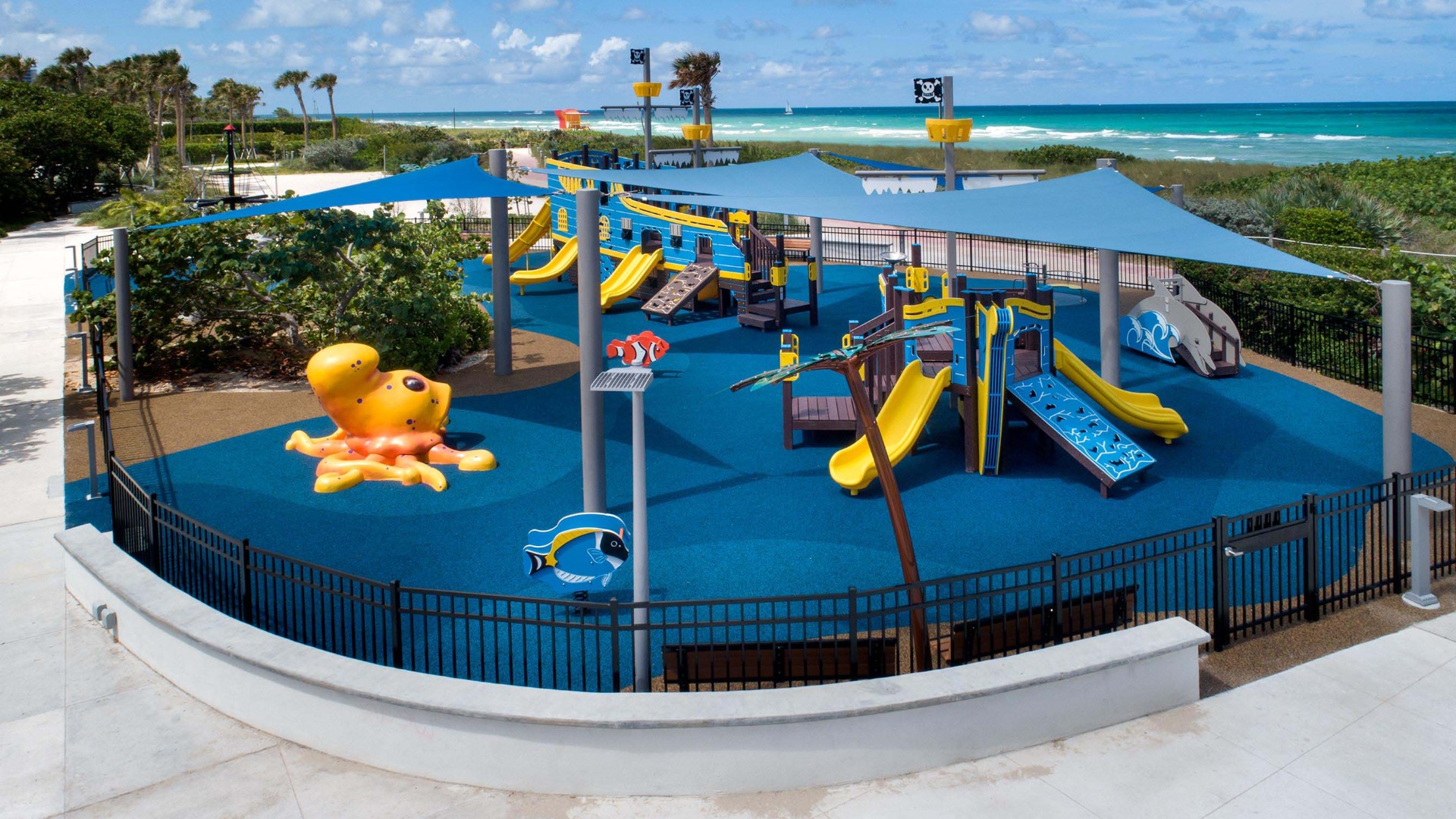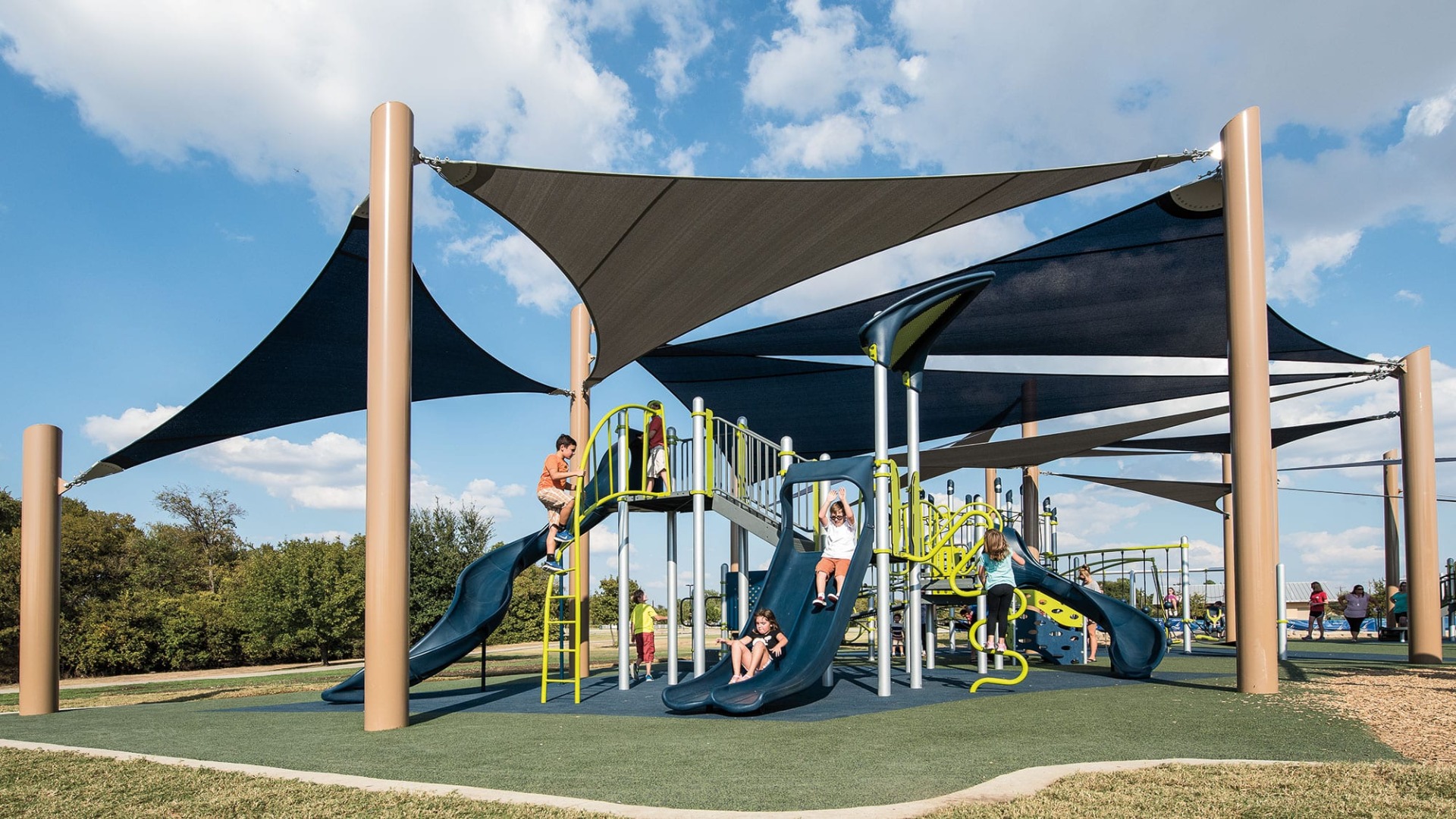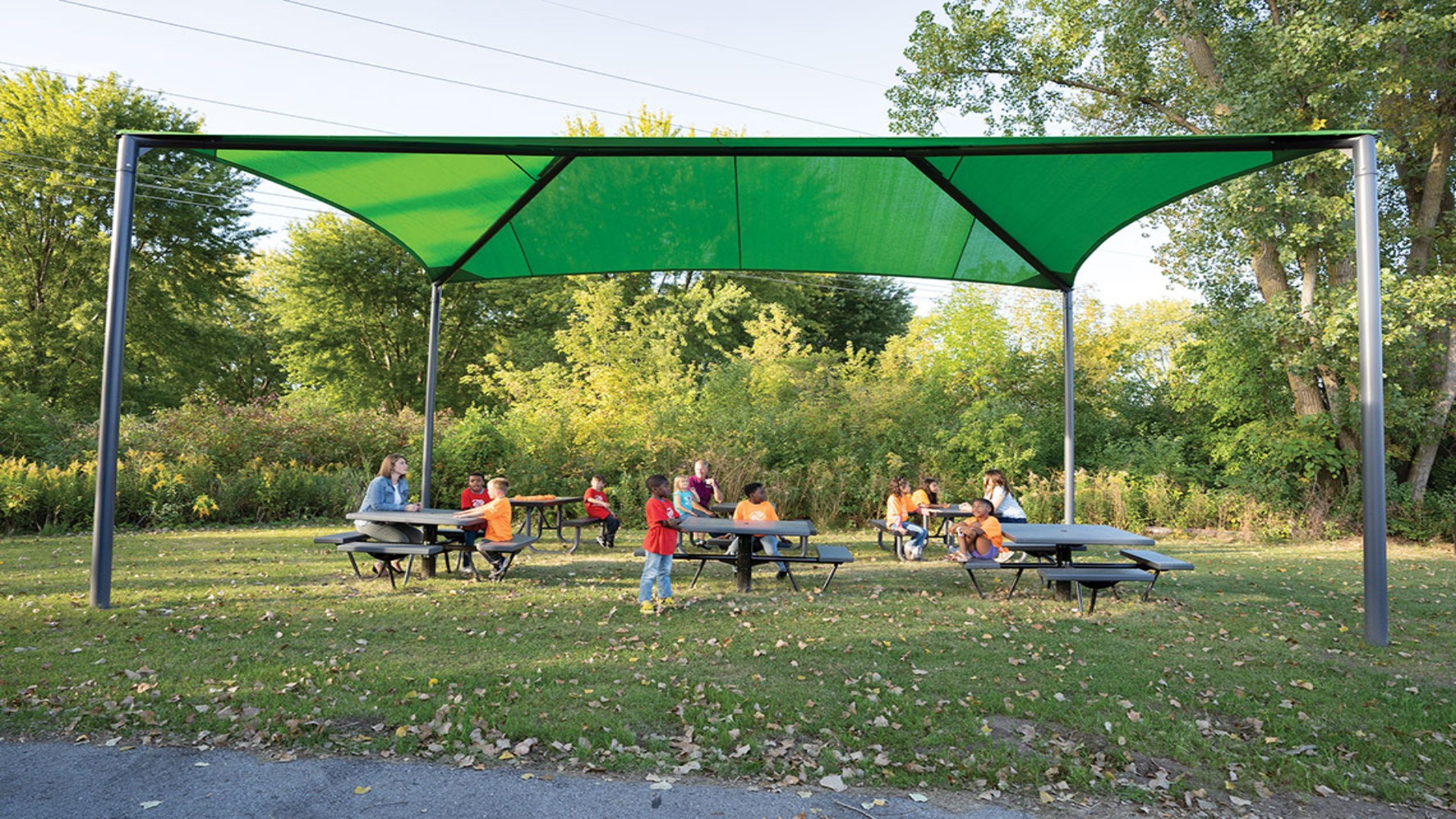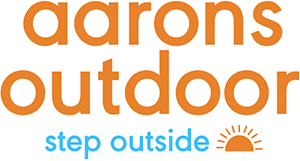Nothing ruins a kid’s fun in the playground quite like oppressive heat. Particularly on sunny summer days, where metal slides and cement surfaces soak up the sun’s harmful UV rays, making outdoor play uncomfortable.
As parents and school administrators, it’s our responsibility to ensure children can enjoy recreational activities safely. One of the best ways to do that is by installing effective playground shade structures that block direct sunlight.
This guide will explore the various options available for cooling down playgrounds. We’ll compare solutions like shade sails, canopies, pergolas and more to understand their effectiveness, durability, costs and maintenance needs. Tips for installation and ongoing care will prepare you to install and maintain your chosen structure for years of relief from the summer heat. Let’s get started evaluating the top cooling solutions!
The Importance of Cool Playgrounds
On hot summer days, exposed playground equipment can reach searing temperatures that pose health risks to children. Asphalt and metal surfaces often exceed 90 degrees Fahrenheit, which can cause burns, heat exhaustion or strokes if contact is prolonged.Shade helps lower playground temperatures by 20 degrees or more, providing a safer environment for kids to play and exercise outdoors.
Beyond safety, shade also enhances the play experience. When it’s blisteringly hot, children will understandably lose interest in outdoor activities quickly. The shade allows kids to enjoy recess and play without discomfort from the harsh sun’s U.V. rays. This encourages active and social engagement even on warmer days. The structure of playground shades also extends the usable hours of a playground earlier and later in the day when temperatures are more moderate.
Cool playgrounds are essential for schools to allow students daily breaks for fresh air, movement and developmental benefits during recess. Providing park shade structures demonstrates a clear commitment to students’ well-being beyond the classroom. It also offers liability protection by mitigating health risks from exposed playgrounds.
Common Shade Structure Options
There are a few primary structure types used to provide shade over playgrounds. Each has its benefits and purpose. Check out some of the most common shade structure options below:
Shade Sails
Shade sails are triangular or trapezoidal panels of shading fabric that are anchored at the perimeter of the kids’ play area. They are often made of weather-resistant woven polyester or PVC materials. Shade sails offer a high coverage area for their cost and flexibility in sizing and placement. Their draped design provides both shade and visual appeal.
Shade Canopies
Shade canopies offer more solid overhead shelter than sails. They commonly come in freestanding designs with posts at each corner or cantilevered styles anchored to a single post.
Canopy frames are usually aluminium, steel or wood, and the roof can be made of similar fabrics to sails. Compared to sails, canopies offer better rain protection but less versatility in configuration.
Shade Pergolas
Pergolas have a more open-air, landscaped feel than sails or canopies with a solid roof but lattice or slat sides. Similar materials are used for the roofing. They provide dappled, indirect shade coverage while still allowing circulation.
Pergolas complement natural playground designs and are less maintenance-intensive than solid canopies.
Other Shade Structure Ideas
While sails, canopies and pergolas are among the most common shade structures, there are a few alternative options.
Umbrellas
Large market umbrellas mounted on sturdy bases can offer portable, cost-effective shade for small areas. They work well near picnic tables or sandboxes. However, repositioning umbrellas requires more effort and may blow over in strong winds.
Trees and Plantings
Mature trees and leafy bushes naturally provide cooling shade. Increasing greenery takes time but can integrate seamlessly with a natural playground aesthetic. Well-placed trees and plants offer multi-season benefits for aesthetics and shade. Ensure species are non-toxic and will not drop hazardous debris.
Fabric Screen Panels
Temporary or semi-permanent screen panels made of lightweight shading fabric offer flexibility. Panels can be positioned as desired and moved seasonally. They require secure steel or wooden framing for wind resistance. Combined with arbours or pergolas, panels nicely expand coverage areas.
Choosing the Right Shade for Your Play Area
There are a few key factors to consider when choosing the perfect shade structure for your playground. The size and layout of your play area are essential to assess which structures will provide adequate coverage.
Shade sails typically require ample, open space to be fully effective, while canopies or pergolas can work in smaller or oddly shaped areas. Your budget will also influence options, as installed costs vary significantly between playground structure types.
To compare the long-term costs, look closely at the materials, expected lifespan, and maintenance needs. Consider how children will use different zones of active play versus quiet activities. Public playgrounds may need solid rain protection, while a home daycare could use portable panels. Structures facing prevailing winds need sturdier builds.
Consulting local shade structure installers who have completed similar projects in your climate will help narrow choices based on first-hand experience. Their assessments of your space can ensure the proper structure is selected to suit your activity needs and location specifics.
Your Guide to Battling the Heat on Playgrounds
Creating shaded play areas allows children to enjoy outdoor activities safely on sunny days. As we’ve explored, several highly effective structure types should be considered depending on your unique space and needs. Shade sails offer the best coverage at a lower cost, while canopies deliver better weather protection. Pergolas elegantly blends functionality with natural aesthetics.
No matter your preference, choosing a high-quality product and installer is essential. Aaron’s Outdoor is a leader in commercial shade solutions, with extensive experience evaluating playgrounds and recommending the ideal structures. We specialise in durable, vandalism-resistant materials and minimise long-term costs with low-maintenance designs.
Please contact us if you’d like a free consultation on the options available for your school or childcare play area. Our expert team will assess your space, budget, and goals to develop a customised proposal to keep kids cool through the many summer seasons to come.
FAQs
Do shade structures require maintenance?
Yes, all shade structures will require some care and maintenance over time to keep them functioning correctly and extend their lifespan. Fabric canopies or sails typically need cleaning or tension adjustments seasonally.
How long do shade structures last?
Quality structures made from durable materials like aluminium and acrylic fabrics can last 10-15 years or longer with regular care and inspections. Lower-quality or poorly maintained structures may only last 5-7 years. Proper installation is also crucial to longevity.
Why are some materials more expensive?
More expensive materials, like heavyweight vinyl fabrics or galvanised steel, are often worth the higher initial cost due to their greater resistance to fading, cracking, or corrosion in the sun or weather. This saves replacement costs down the line.
Can shade sails provide rain protection?
While shade sails are not fully waterproof, many advanced fabric blends resist light rain and will only leak in heavy downpours. Canopies provide the best shelter from rain. Umbrellas are suitable for occasional use but are not reliable for rain protection.
Do permits or inspections apply for structures?
Permit requirements for shade structures vary by location. Checking with your local planning or building departments for regulations is best. Third-party inspections also ensure proper installation for safety.








